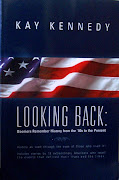I just finished the book, John Adams by David McCullough, and on the same day I found out we had lost another of America’s most significant politicians. Somehow, the fact that both happened on the same day compelled me to compare their two lives. Although one was a President and one a Senator, both were from the State of Massachusetts, both made an indelible mark on history, and both served the nation unselfishly throughout important but troubled times.
What surprised me most about the book, John Adams were the similarities with today’s political climate in the United States. Even then, members of the Continental Congress disagreed vehemently about some issues, even whether to declare independence. John Adam emerged as a leading founder of our country and a great man who sometimes disappointed American citizens, but remained steadfast in his determination to forge a new nation, independent and free.
Unlike Adams, Senator Edward Kennedy followed the legacy of his older brothers, and had been expected to follow in their footsteps and run for president. The shock of their deaths by assassins surely produced inner turmoil and ambiguous feelings that frightened him beyond the average person’s capacity to understand. He never asked for the role as head of a large, extended family, and he must have been horribly frightened at the prospect of living up to his family’s and the Democratic party’s political expectations. So while being pushed to embrace his brothers’ legacy, he rebelled by making terrible lifestyle choices and exhibiting immature, unacceptable behavior that ruined his chances of someday successfully running for president.
He had a family duty to serve as a role model to his own children and all of his fatherless nieces and nephews, yet he was obviously conflicted about the role at a time when his own emotional life was in turmoil. He had suffered great loss at the deaths of his older siblings, and now he was expected to be strong and lead his family. Maybe it wasn’t intentional that he destroyed his future as the leader of the United States, but possibly on some subconscious level he feared becoming another Kennedy caught in the crosshairs of an assassin. Whatever his motives for making huge mistakes in his political career, he still managed to become one of the nation’s longest serving Senators, as well as an effective spokesman for civil rights for minorities, as well as rights for the elderly, the poor and hopeless, and for everyday, ordinary working men and women. His last cause was for healthcare reform that would give all Americans, no matter how poor or sick, the same level of care as anyone else. To him, healthcare was a right, a human right, rather than a privilege only for the well-off and gainfully employed.
Ted Kennedy could have turned his back on public service after the devastating losses he and his family endured, and as a man of wealth, he could have ignored those poorer than he. He could have easily, and without guilt said, “Enough! This family has sacrificed enough for our country.” Yet he continued to serve, standing up for, and fighting sometimes hopeless battles for those who couldn’t fight for themselves, and for those who lacked a voice at all. He continued the legacy of his brothers to fight poverty, only his stage was to be as a Senator for almost half a century.
And two centuries before, John Adams continuously sacrificed for his country. Underpaid, and often without a word of thanks, he forfeited precious time with his beloved wife, Abigail, and his children to try and forge a nation from the wilds that were America during the last half of the eighteenth century. So much has changed since John Adams served in the Continental Congress, and then represented the newly formed United States in a quest for recognition and for funds to ensure its continuation, and finally served as its second President. One has to wonder what John Adams would think about our country today?
Two leaders, two centuries apart, yet these two New Englanders both spent most of their lives fighting for justice and freedom for the United States of America.

